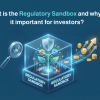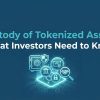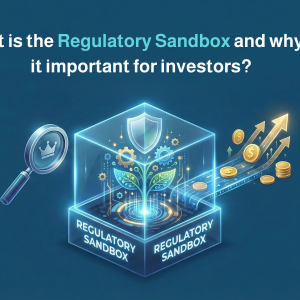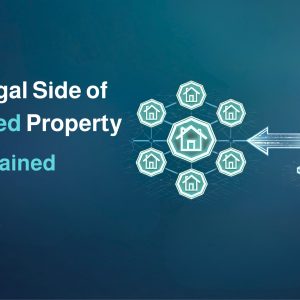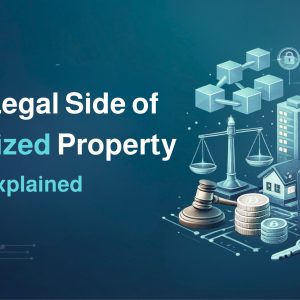The Saudi Arabia stock market has become quite the hot topic recently. With Vision 2030 pushing the Kingdom toward economic diversification, Tadawul (the official name for the Saudi Exchange) now ranks as the world’s 11th largest stock exchange.
The numbers are pretty impressive—we’re talking about a market worth over SAR 9 trillion (roughly USD 2.4 trillion). What makes this interesting is how the Kingdom has opened doors that were previously locked tight. GCC residents and qualified foreign investors can now jump in directly, a massive change from the old days when this market was off-limits to outsiders.
If you’re curious about how to invest in the Saudi Arabian stock market, you’ll need to understand the new rules, different investment paths, and what makes this market tick. We will be investigating how to invest in saudi arabia stock market.
You can start investing now from the Gamma Asset Investment Platform
How to invest in the Saudi Arabian stock market as a beginner
Investing in the Saudi Arabian stock market isn’t rocket science, but you must check some boxes first. Saudi nationals and GCC residents can open investment accounts directly through licensed brokers—it’s become much simpler. You’ll need your ID, proof of where you live, and enough cash to meet whatever minimum your chosen broker sets.
Your first move should be picking a licensed broker approved by the Capital Market Authority (CMA). You’ve got options like:
- Local players: Al Rajhi Capital and Riyadh Capital
- International names: Morgan Stanley and Credit Suisse
These firms don’t just execute trades—they offer research, portfolio management, and trading platforms that make everything easier. Here’s something beginners often miss: there are two different markets you can trade on. The Main Market (TASI) is for the big companies with market caps above SAR 300 million, while the Parallel Market (Nomu) handles smaller companies starting at SAR 10 million market cap. Each has rules about trading hours, price limits, and volatility, so do your homework before diving in.
What is Tadawul and how does it work?
Tadawul isn’t just some local exchange, it’s a serious player in the global financial world. Think of it as Saudi Arabia’s version of the NYSE, handling everything from regular stocks to sukuk (Islamic bonds), REITs, ETFs, and even derivatives. The main benchmark everyone watches is the Tadawul All Share Index (TASI), which tracks how all the listed companies perform.
Key Operating Details:
- Operating days: Sunday through Thursday
- Trading hours: 10:00 AM to 3:00 PM Saudi time
- Price limits: 10% daily swings for Main Market, 20% for Nomu stocks
- Settlement: T+2 (trades settle two business days later)
What’s changed the game is Tadawul’s tech infrastructure. They can handle high-frequency trading and pump out real-time data through licensed vendors. International index providers like FTSE Russell and MSCI have given their stamp of approval, which is enormous for attracting global money. They’ve recently added futures and options trading, giving investors more ways to play the market.
Can foreign investors access the Saudi stock market?
The short answer is yes, but it depends on who you are and how much money you bring. If you want to learn how to invest in the Saudi Arabian stock market as a foreigner, you’ve got several options.
Qualified foreign investors (QFIs) need serious cash, a minimum of SAR 1.875 billion ($500 million USD) in assets under management. This category is mainly for institutional players like banks, insurance companies, investment funds, and government entities. You can’t apply directly; you must go through a licensed capital market institution.
Foreign Strategic Investors (FSIs) are a newer, interesting option. These are established foreign companies that want to take meaningful stakes in Saudi businesses for strategic reasons. The catch is you have to lock up your shares for two years, but there’s no limit on how much you can own. The big news for 2025 is that GCC residents—including expats from Gulf countries—can now trade directly in the Main Market. Before this, you were stuck with swap agreements and indirect investments. Even better, if you used to live in Saudi Arabia or other GCC countries, you can keep your investment account active even after you move away.
Tips for building a local stock portfolio in 2025
Building a solid Saudi stock portfolio means understanding what drives this market. Energy companies, led by the giant Saudi Aramco, still dominate the market cap rankings. However, Vision 2030 is creating opportunities in financial services, telecommunications, and healthcare that savvy investors are watching closely. The key is spreading your bets across different sectors rather than putting all your eggs in one basket.
Key Investment Strategies:
- Sector diversification: Don’t just buy energy stocks—explore financials, telecoms, and healthcare
- Vision 2030 alignment: Look for companies benefiting from economic transformation
- NEOM and GIGA projects: Infrastructure development creates investment opportunities
- ESG considerations: Environmental, social, and governance factors increasingly matter
Dividend investment is another major draw in Saudi Arabia. The market average sits around 3.9%, which beats most global markets. Major banks like Al Rajhi Bank and Saudi National Bank tend to pay out consistently, while utility companies offer steady income streams. Ensure you’re looking at whether companies can afford these payouts over time.
Timing matters more in Saudi Arabia than you might expect. Trading volumes drop off during Ramadan, and quarterly earnings seasons can move prices around. The market follows the Islamic calendar for specific corporate actions, so you must understand local business cycles.
Here’s something crucial: oil prices still heavily influence market sentiment, despite all the diversification efforts. When crude goes up or down, the whole market often follows.
Risk Management Tips:
- Start small: Begin with companies you understand
- Monitor oil prices: They still drive overall market sentiment
- Watch currency fluctuations: SAR is pegged to USD, but regional factors matter
- Stay informed: Follow Vision 2030 developments and government announcements
Why Gamma Assets complements local stock investments
While building a portfolio in the Saudi Arabian stock market can offer intense regional exposure, Gamma Assets allows you to diversify into global real estate-backed investments with minimal capital and no operational hassle. This approach provides geographic diversification beyond the Saudi market, reducing concentration risk associated with single-country exposure.
The platform’s low minimum investment requirements make it accessible to investors building Saudi stock portfolios gradually. It offers professional portfolio management and international market access that complements local holdings through fractional ownership in global real estate properties.
Building wealth through Saudi Arabia’s capital markets is an exciting opportunity, especially with all the changes under Vision 2030. The regulatory environment keeps evolving in investor-friendly ways, and market access that once seemed impossible is now a reality for many international investors. Success comes down to doing your research, spreading your investments across different sectors, and understanding the local factors that move this market—things like religious observances, oil price swings, and the ongoing economic transformation.
For investors who want to build comprehensive wealth-building strategies, mixing Saudi stock investments with international diversification through platforms like Gamma Assets makes a lot of sense. The Saudi market offers compelling growth prospects driven by economic transformation, massive infrastructure projects, and increasing foreign investment flows. However, maintaining global diversification helps manage the risks of focusing too heavily on one region.
Whether you’re a Saudi national, GCC resident, or qualified foreign investor, success requires working with licensed professionals, thinking long-term, and staying on top of regulatory changes. The Saudi stock market’s continued evolution presents exciting opportunities for investors prepared to navigate its unique characteristics while building diversified investment portfolios that can weather different market conditions.
More topics can be read on the Gamma blog
Frequently Asked Questions Regarding How to Invest in Saudi Arabia Stock Market
What’s the minimum amount needed to invest in Tadawul?
Tadawul doesn’t set a minimum investment amount, but individual brokerage firms do. Most licensed brokers want you to deposit between SAR 1,000 and SAR 10,000 ($265-USD 2,670) to open an account. However, if you build a meaningful, diversified portfolio, you’ll need more than that. Financial advisors typically suggest starting with at least SAR 25,000 (USD 6,670) to effectively spread your money across multiple companies and sectors.
Can expats invest in the Saudi stock market?
Yes, but your options depend on where you live. If you’re an expatriate in any GCC country, you can now invest directly in the Main Market thanks to regulatory changes in July 2025. Non-GCC expatriates who live in Saudi Arabia and have valid iqamas (residence permits) can open investment accounts with licensed brokers. If you used to live in Saudi Arabia or other GCC countries, you can keep your investment account active even after you move away. Other foreign investors must qualify as Qualified Foreign Investors or Foreign Strategic Investors, which requires going through institutional channels.
What sectors are strong in Saudi Arabia’s stock exchange?
The Saudi stock market reflects the Kingdom’s current economic structure and Vision 2030 diversification goals. With Saudi Aramco leading the pack, energy companies still represent the most significant market capitalization at over SAR 5.9 trillion. The financial sector is also huge, with major banks like Al Rajhi Bank and Saudi National Bank commanding about SAR 1.27 trillion in market value. Telecommunications companies are worth over SAR 270 billion, while healthcare services, technology companies, and industrial manufacturers are proliferating. Real estate, consumer services, and renewable energy sectors are experiencing speedy growth as the Kingdom moves away from oil dependence.

